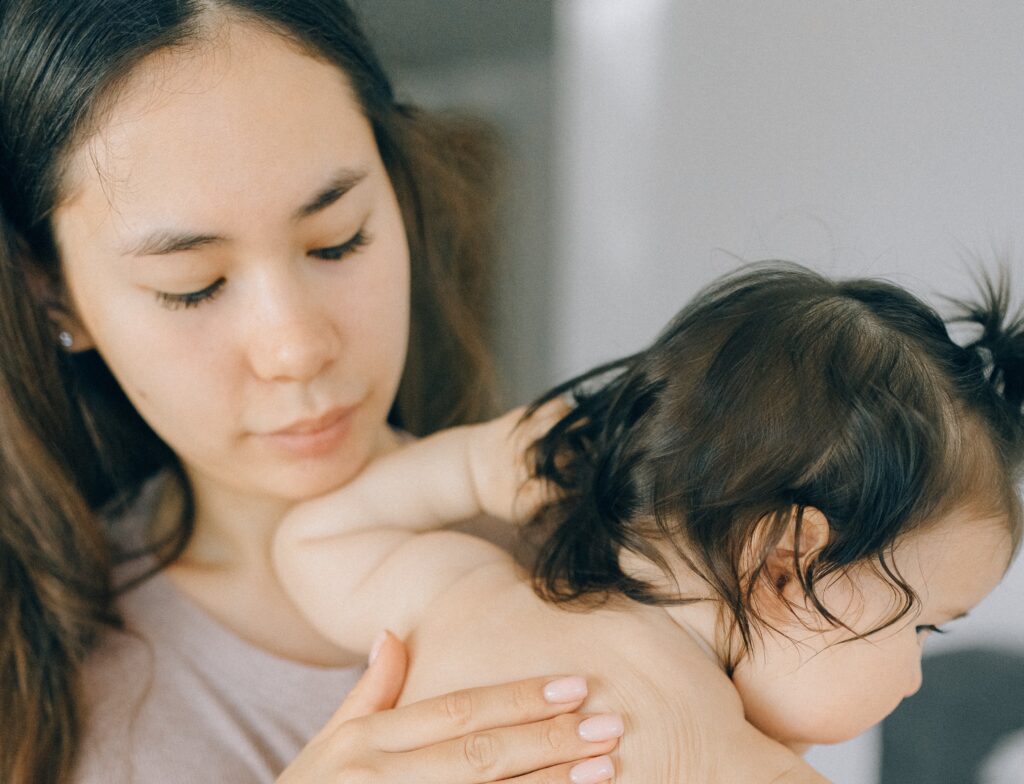Nurturing Your Child’s Wellbeing
Written by Chinyelu Kunz

/ In this article
01 Learn the importance of rhythm for your child
02 Signs that your child is dysregulated
03 Tips for creating a rhythm
Whether your child feels in harmony in their body or not is directly related to their sense of well-being. For the young child, you nurture this by providing them with a healthy rhythmic life. They need rhythm in order to develop a sense of safety and security. When each day’s rhythm is clear and predictable to your child, you’ll find that they will be more responsive to your guidance and you won’t have to repeat your words over and over.
Do you have a strong daily rhythm?
When you think about your daily anchors like bedtime, nap/rest time, playtime, and mealtimes, are they meeting your child’s needs? Are they consistent and predictable? Young children make it very clear by their behavior when they don’t know how their day is going to go. Surprises disorient them and can lead to overwhelm. Their sense of wellbeing is off balance and then it becomes very challenging for them to listen and be in control of their emotions (which can be a challenge even in the most harmonious of times). But it makes it that much harder for them when their sense of well-being is not, for the most part, in a harmonious place.
Remember, rhythm is structure and balance, and it supports a harmonious life. Rhythm is the flow of daily activities that alternate between being quiet or being active. It’s much like breathing – breathing in and breathing out. A healthy rhythm will provide a strong foundation for your child and for family life. I believe that rhythm is actually the mindful awakening to living.
Rhythm will enable you to create a nurturing home environment which is essential to caring for your child’s well-being. Young children are deeply affected by the environments they come into contact with and experience. If a child is in an environment where there is stress, they will be stressed. If they are in a chaotic environment, they will be overwhelmed by the lack of order and they won’t be able to orient themselves to the environment. When this happens their body will respond to the stress they feel. For a baby, it might look like inconsolable crying, screaming, clinginess, fright in their eyes, and not being able to nurse or be fed. For an older child, the response might look like crying, hitting, biting, running away, and other behaviors such as these. The more a young child’s sympathetic nervous system is activated, the more likely you will see these types of behaviors.
The opposite experience would be an environment that is orderly and calm. A calm environment activates the parasympathetic nervous system which then relaxes the body and helps a child relax because they will feel safe. Experiencing this relaxed state contributes to the body’s sense of wellbeing. This is what we want for our little one, to feel good in their body and the more attention we give to nurturing their wellbeing the more possible it becomes for their body to put its energy towards healthy growth.
It’s important to know that your energy also creates the environment.
You are the weather, so to speak. If you are angry, the environment may become stormy. If you yell and scream, the environment will easily feel unsafe and scary. If you are calm, steady, and confident, the environment will feel safe.
Your child’s mood is often a good guide to whether they are getting enough connection time with you, enough sleep, and enough time to move their body freely. The rhythms you create and hold consistently take all of your child’s needs into consideration and this lets your child know that all is well and in turn, they feel secure. This is also where creating rituals becomes essential. Rituals are a way to strengthen your rhythm. You do this when you have rituals that are predictable at certain times of the day. Often transitions and connection times are great times for rituals. You can have a diaper-changing ritual where you always say a nursery rhyme or sing a song. A ritual for dressing a little one can be very helpful when it’s time to get them dressed. Young children love rituals for specific activities or events that especially mark times in the day when we are present with them.
One of the greatest gifts you can give to your child is soul nourishment and you can do this by providing them with healthy rhythmic days. Healthy rhythms create warmth in the home through connection and relationship that is nurtured over time. Nurturing takes time, it takes being consistent and perhaps most of all it takes nurturing your mindful awakening to life.
To learn how to create a rhythm unique to your family, get the parenting workshop: How to Create a Restorative Daily Rhythm.